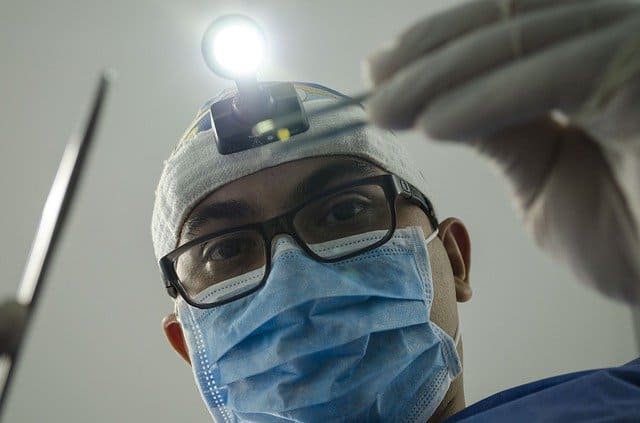Nail biting is a common habit among both men and women that tends to start at a young age. Research shows that we generally don’t bite our nails before age 3 and that often nail biting will stop when we reach adolescence or when we become young adults. Some of us however continue biting our nails well into adulthood and beyond so we run the risk of experiencing a number of side effects one of which involves grinding our teeth.
Bruxism refers to grinding or gnashing your teeth either when you’re awake or when you’re sleeping. A bruxer refers to a person who engages in teeth grinding and might be unaware that they even do it especially if it occurs at night when sleeping. This can lead to teeth being worn down, severe headaches and jaw problems including issues with your temporomandibular joint (TMJ) which can additionally lead to other health concerns like tooth sensitivity. Nail biters are at increased risk for bruxism due to the stress that they place on their teeth and jaw from the constant biting of nails.
The most common symptoms of bruxism include worn down or broken teeth, headaches, facial pain, sleep disruptions, jaw pain and earache.
Bruxism Risk Factors
Research suggests that people are at greater risk for bruxism due to stress, age, medication and caffeine consumption, heredity, sleep disorders, and personality type. Specifically, your risk for bruxism goes up when you:
- Have high stress levels that you find difficult to manage.
- Are young, as bruxism tends to go away when you reach adulthood.
- Use medications and have a high caffeine intake. Smoking also increases the likelihood.
- Have a family history of bruxism.
- Have a sleep disorder such as sleep apnea.
- Have an aggressive or highly competitive personality and frequently get angry.
Bruxism and Nail Biting
Bruxism is believed to be caused by a number of factors like stress and anxiety but also by physical traits such as misaligned teeth. Dental professionals and other medical professionals also suggest that nail biting can contribute to a greater chance of bruxism as can chewing on pencils and other hard objects that aren’t food as you increase the clenching of teeth throughout the day.
Awake Bruxism
Awake bruxism refers to grinding your teeth during the day when you’re awake. It could be self conscious or subconscious. To help avoid awake bruxism, avoid chewing on pencils and other hard objects that aren’t food. Also try to manage the above factors such as anger and agressiveness while also avoiding activities that increase the chances of teeth grinding such as smoking and high caffeine instake.
Since awake bruxism tends to be exacerbated through stress and anxiety, reducing stressors and triggers that cause anxiety can help to reduce the grinding of teeth. Also, document when you notice that you are grinding your teeth to understand when you do so and where (ie. at work, at home), which may also help to reduce teeth grinding.
Studies suggest that awake bruxism is prevalent in 22% – 31% of adults depending on the frequency.
Sleep Bruxism
Sleep bruxism or night bruxism occurs when you’re sleeping, and thus occurs subconsciously. It’s night grinding of teeth completely unbeknownst to you since you are not awake at the time. I have been diagnosed with this and have some wear on my teeth as a result. So does my mum. I have occasionally woken up with a bad headache that feels different from the type of headache I sometimes get due to eyestrain or from wearing my contact lenses too long. This headache that I get from grinding my teeth feels very deep in my head if that makes sense and usually takes a few aspirins to get rid of it the next morning.
Studies suggest that sleep bruxism may be as prevalent as 9% – 15% in adults depending on frequency.
Important to note is that sleep bruxism is considered a sleep-related health concern and often a result of more serious issues like sleep apnea or snoring. In that regard it’s important to get it checked out if you feel it’s something you suffer from.
Treatment For Bruxism
The first step in treating bruxism may be to visit your family doctor for a talk and to get a referral to another doctor if needed. They may refer you to a specialist such as a sleep specialist if you are night grinding your teeth. You may also want to visit your dentist to check on the status of your teeth to check for tooth damage and noticeable wear that can be put down to bruxism. A dentist might prescribe a bruxism tooth guard to protect against night bruxism.
Bruxism Guard
A dental mouth guard is often suggested by a dentist or other medical profession to act as a buffer between your teeth at night when sleeping. So if you grind your teeth, a fitted mouth guard can help to prevent the damage caused by teeth grinding. A mouth guard doesn’t actually solve the problem though. You’d still be grinding your teeth and could possibly develop some of the other side effects so it’s best to try to get to the root of the problem and stop the grinding completely if possible.
If you feel you may suffer from bruxism or do grind your teeth, see your doctor as soon as possible for direction. And the sooner you quit biting nails, the better too.
Recent Posts
Stimming, short for self-stimulatory behavior, refers to repetitive or rhythmic movements or sounds that some individuals with autism or other neurodevelopmental conditions engage in. It is often...
Nail biting and nail picking is a common habit that affects many people, especially during times of stress or boredom. While it may seem like a harmless habit, it can actually have negative...


